The MVPs: Worth their weight in gold
Procycling speaks to the most-valued team players in the peloton
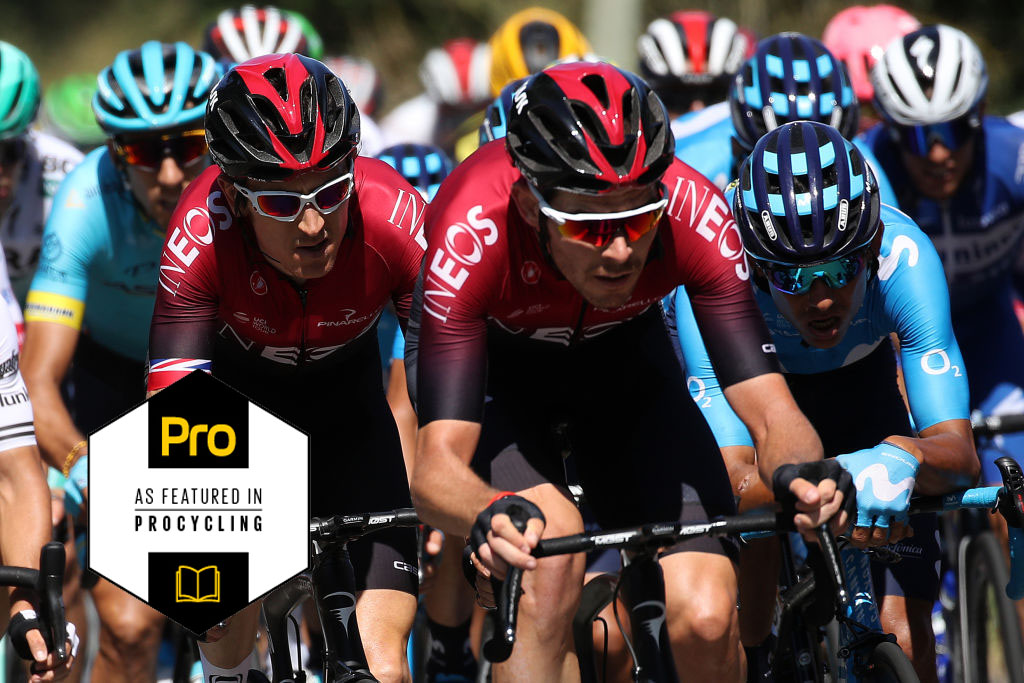
Procycling magazine: the best writing and photography from inside the world's toughest sport. Pick up your copy now in all good newsagents and supermarkets, or get a Procycling subscription.
This article first appeared in Procycling issue 257, in 2019, and we're re-publishing it on Cyclingnews as part of our Domestique Week.
With team sizes squeezed to eight riders for Grand Tours, and modern-day race routes throwing up countless potential hazards, a versatile all-rounder able to fill multiple roles often proves crucial to team leaders. Procycling speaks to the most valued team players in the peloton.
Stefan Küng (Groupama-FDJ)
"When you look at all the races in my season, out of those 80 days there are maybe 10 time trials and team time trials for me to fully focus on. Then you have maybe 10 one-day Classics – which also require full focus – but there are 60 other days where I really want to contribute.
"In the Tour de France in 2017, on the stage to La Planche des Belles Filles, it was only me and Micky Schär who controlled the breakaway with eight riders – guys like Edvald Boasson Hagen and Philippe Gilbert. Everybody saw it, and the next day we had everybody come to us and they were, like, 'You were like motorbikes'.
"The teams see that, and when they pick their roster for the Tour they are, like, 'We want to take a sprinter and we want to be competitive in the team time trial.' When they know you can do the job of maybe two guys, you're much more valuable.
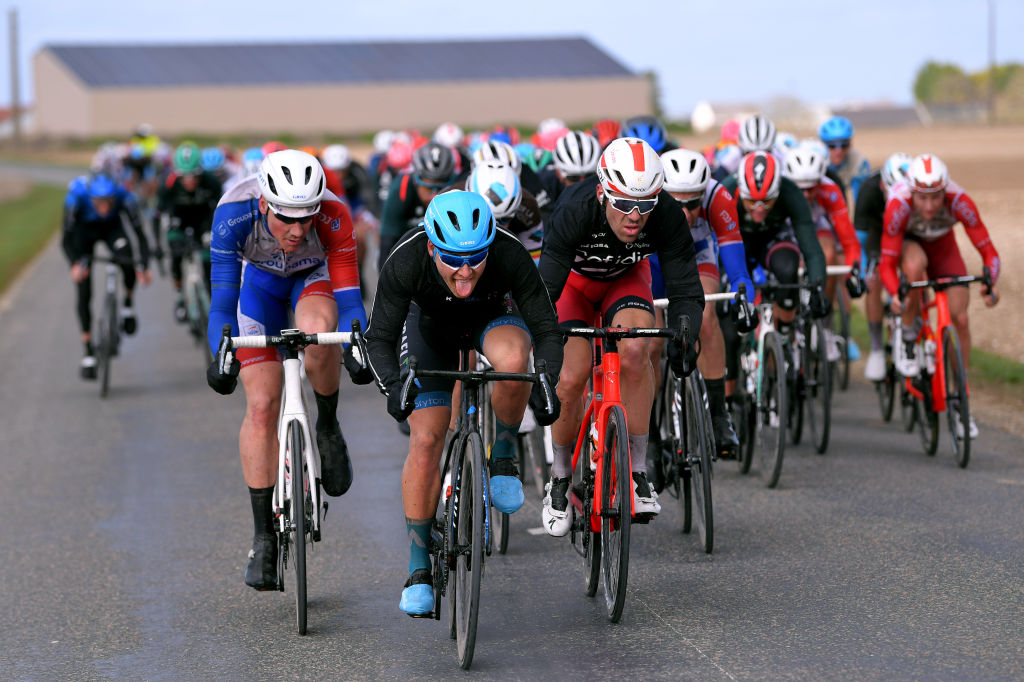
"For me, the shrinking size of the teams was never a problem because, up to now, never for any race was there a question if I would be selected or not. I know it's hard for some riders who might be on the limit, but for my value it's good. It's really good to be versatile.
Get The Leadout Newsletter
The latest race content, interviews, features, reviews and expert buying guides, direct to your inbox!
"When you have an echelon you always have the same guys, so you respect each other because you know their qualities. There's no point battling against them because you’re in the same boat in a way. Luke Rowe [Team Ineos] tries to protect his leader, Oliver Naesen tries to protect Romain Bardet [at AG2R La Mondiale], and it's good to be up there with these guys and earn their respect. How do you earn this respect? Cycling is a simple sport; it's the law of the strongest. Not by having a big mouth or shouting but by showing what you can do. What Luke did in Paris-Nice didn't go unnoticed – we were at Tirreno and everybody was talking about it.
"The best feedback you can have is when you feel that the leader has 100 per cent confidence in you. If it just happens that he always naturally comes to look for you and stays with you, that's the best feedback because then you know you are doing your job right. I feel like I have responsibility for my leader. If there was to be a crosswind situation in this year's Tour de France, and I'm not in the front with Thibaut Pinot, I would blame myself because it's my job to bring him to the right place. Maybe your reward is not the win but to be able to put your leader there, which, without you, he might not be able to do by himself."
Luke Rowe (Team Ineos)
"A big part of my job – certainly in the last four Tours de France I've been part of in 2015, 2016, 2017 and 2018, when we've always taken the yellow jersey fairly early – has been to spend a lot of time on the front. I think a big part of being able to do that is about being able to climb slightly better. You can go a lot further in the race. Essentially, the longer I can sit on the front and set the tempo, it means we have more guys towards the back end of the race and strength in numbers. Every extra kilometre I can pull for means one less kilometre that the other guys have to take over from.
"I think with one less guy in the teams at the Tour, it's one less domestique as the team always takes the star rider. That has a knock-on effect: it increases the value of a rider who can cater to a lot of areas. If you can have one guy who can look after a rider towards the end in sprint finishes, ride on the front and climb half decently, it's a good value to have.
"The role is quite high pressure. In Paris-Nice, for example, this year, there were guaranteed crosswinds during the early stages and we had a team that was pretty much all climbers. It's clear that you're going there with a role to do, and if you fail in that role, your GC guys, 'Kwiato' [Michal Kwiatkowski] and [Egan] Bernal, are going to be completely isolated. It's not the climbers' job to be there – they were smashing it up the Col de Turini – that's my job in the wind.
"Great leaders – Kwiato, Bernal, G [Geraint Thomas], Froomey [Chris Froome] – they kind of make you better than you are. They'll follow your wheel. But when you've got their trust, that's the big one. When they trust you, they just follow you and they say, 'Wherever you go, I'll follow.' If I'm not in the right place at the right time, then you lose that trust, but once you fairly consistently get it right and they see that, it gets easier."
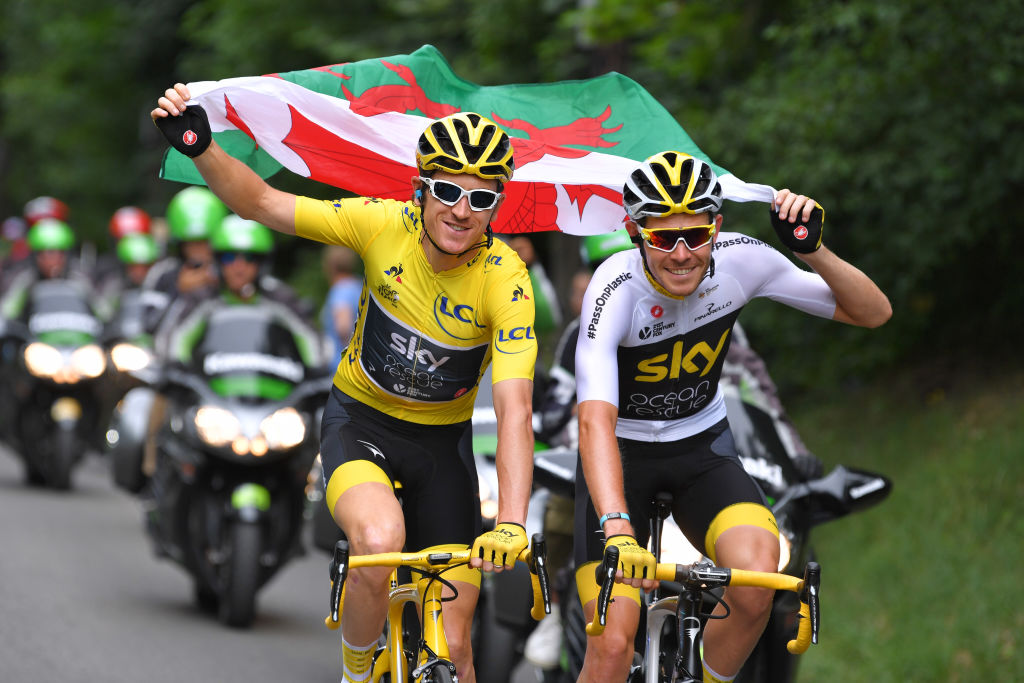
"In every team, there'll always be one or two for that kind of role: a flat, helper-ish type. You know who they are – Bernie Eisel, Michael Schär, Marcus Burghardt – these guys are the best in the world. You're all trying to do the same job, so it's easier to just get along with each other and accept we're not all going to be able to do it perfectly, because we all want to get into that corner first and only one of us can.
"When I joined Sky, it was a bit of an older team. We had guys like Bernie and Mat Hayman, who I was lucky enough to turn pro under. What they gave me was invaluable, and I'll forever be grateful for what they taught me."
Vote for the Cyclingnews Best Domestique in the World#CNBestDomestiqueRound two - The best sprint supportMarch 30, 2020
Michael Schӓr (CCC Team)
"It is a team sport, obviously, but in every team you have some individuals who go for the same results, and every race is the same. You have to get the trust from your leaders, which is the main thing; if they don't trust your back wheel because you make strange moves, then it's not the way to do it.
"The first thing is trust, and then you have to understand the race, make only small moves, and not spend too much energy when it's not necessary. I don't think that's an experience thing; I think you have it or you don't... You are one of those fighters who is in every finale.
"Every day I have to elbow Luke Rowe – it's always the same guys. There are eight, 10 guys. We know each other, we laugh, but we give each other so much shit. Marcel Sieberg is a good friend of mine, but when the race finale is on, our elbows are always next to each other, while 10 kilometres before we would be chatting.
"That's the thing – either you have it or you don't. You see it with lots of neo-pros; they don't really have it and then suddenly they get it. Nathan van Hooydonck joined the team last year and on the first day I said, 'Oh shit – he's an asshole, and knows how to fight.' He will have that his whole career."
Oliver Naesen (AG2R La Mondiale)
"My role has evolved a lot since I joined the team in 2017. I remember the phone call from Vincent Lavenu and he was, like, 'After the Classics, we are always the last team in the WorldTour ranking with zero points. We just want a Classics leader who finishes regularly between 10th and 20th, and gets a couple of points.'
"I thought, 'OK – I'm a second-year pro; that's something I can do.' Expectations weren't all that high. Then I got one podium in 2017 [third at the E3 Harelbeke] and the year after they were, like, 'We've got to get some more podiums.'
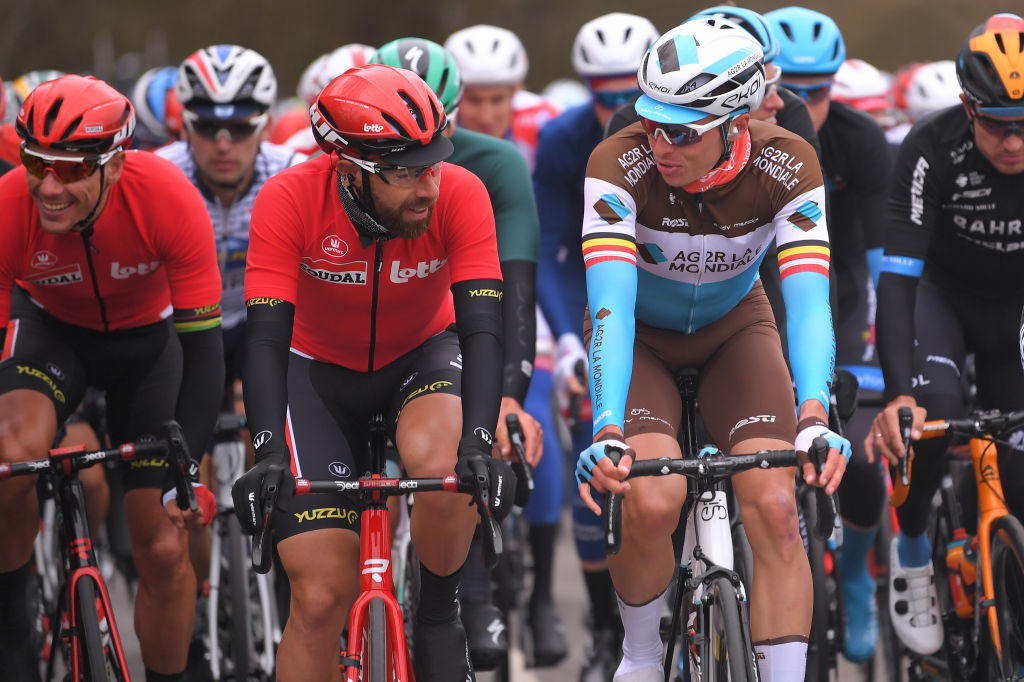
"The role I have in the team is as the leader in the one-day races, and then a helper for Romain Bardet in the stage races. This is a role that I really love; it suits me very well. Last year the Grand Tour team sizes got smaller by one place, and for a rider like me, that was a good thing. If you're specialist at riding on the flat, or mountain climbing, or whatever, as the teams get smaller you get more polyvalent guys like me.
"At the front, you're always next to the same guys. I remember the first days of Paris-Nice, I was always riding next to Luke Rowe. I also realised that if I wasn't there, there was a high chance that Romain would not have been fourth or fifth on the GC at the end. Like in the Tour de France, it's super important for a guy like me to be there.
"When you are new in the bunch and you try to position yourself before a key point, other riders or teams won't let you in. They’re, like, 'Fuck, this guy is going to leave a gap.' When I take one of the front positions now, there's no one who comes to fight me, even if it's for a long mountain, a cobbled hill, or some wind. I feel like I'm really respected and everybody is happy to see me on the front. I don't think anyone worries about me leaving gaps, so I get a lot of space."
Daryl Impey (Mitchelton-Scott)
"I never, ever thought that I would be so versatile. That's been a strength. When I started with the team and got selected for the Tour the first time, I thought, 'That's lucky,' as I was a lead-out man. I knew I needed to make myself irreplaceable so that I could fit into any scenario. That's where I've filled in the gap and where I've cemented my spot. I've always kept that side of me – that I'm not too one-dimensional.
"My biggest motivating factor was to tick all the boxes. Before I signed here, I was always fighting for a team, always signing one year contracts and never getting settled. When I came to this team, I started to see that if I did the lead-outs, they valued it. I started going the extra mile: 'Maybe I can lead out and then help a bit on the hills. If I do my job and a bit more, this is a team that values what I do.'
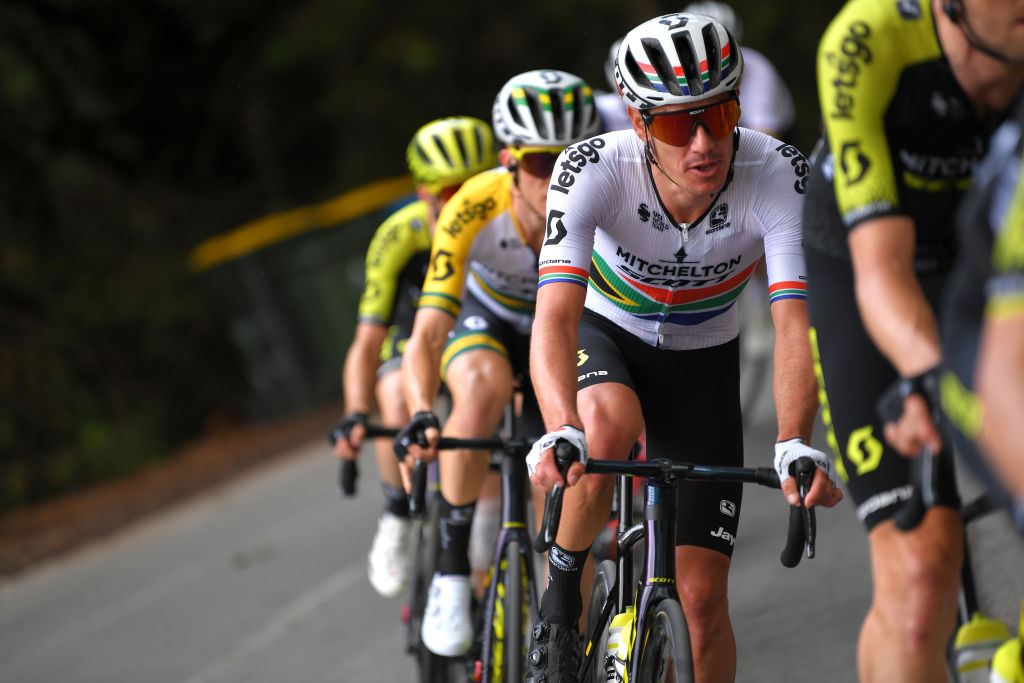
"There are not too many guys in the peloton who can do all these things. There are not many guys that can change their roles and on the day go, 'OK, I'm leading out, and tomorrow we're getting to the climbs.' I started seeing that was my strength – and being reliable.
"A lot of teams are starting to see that you only need a few specialists and then you need the horses to back them up. If you're a guy who can do everything and you're reliable, which is probably the biggest point, then your value does go up. A lot of teams now are looking for guys who are solid; the teams are getting smaller, there are fewer sponsors around, and there's no more room for guys just to make up the numbers. It's improved for riders like me. Back in the day it used to be, like, 'Oh, he's a domestique – he's not one of the boys.' It's changed, the way people perceive helpers compared to before."
Marcus Burghardt (Bora-Hansgrohe)
"The main role for me is to guide the young guys, because in the last 15 years I've seen almost everything that can happen in a race. This makes it easier for the young guys to ask me, 'What do we do now?' or, 'When do we move?' and, 'What's important?' Also, it's to give them some tips before or after the race, for preparation.
"To get the green jersey is always a big goal with Peter Sagan, and to have him in the race, not only in the Tour de France, makes it much more difficult because you always have to take the responsibility when he's on the start line. It's not often that he's not in shape and that we are saying. 'No, we don't ride.' Most of the time we take the race in our hands. He has enough experience for the sprints; I can only help him by keeping him fresher for the last kilometres, and then he has to decide how to do the sprint.
"It was never really a big problem for me to stay up at the front: I did it from the first years when I turned professional, so I more or less grew up in the first line of the peloton. I think that the team know that, when I come to a race, I have the eye to know when it's important to move up and to know when we can relax a little bit.
"They know that they can trust me, and that's also important for the young guys, for the sprinters, for the GC guys. They stay behind you and, if I don't move, normally they don't move. When I move, I think it's important and the right moment.
"When you ride with the GC riders, like Cadel Evans or Richie Porte, they really stay behind you because they know a Grand Tour is three weeks long, and the more time they can spend in my slipstream, the more power they will have for the end of the race. I can do a job alone where other teams maybe need two riders, and if you can provide that, then that's much more important. Then they can take maybe one more lead-out rider or one more climber for the race."
Procycling magazine: the best writing and photography from inside the world's toughest sport. Pick up your copy now in all good newsagents and supermarkets, or get a Procycling subscription.
Follow @Procycling_magazine
Sophie Hurcom is Procycling’s deputy editor. She joined the magazine in 2017, after working at Cycling Weekly where she started on work experience before becoming a sub editor, and then news and features writer. Prior to that, she graduated from City University London with a Masters degree in magazine journalism. Sophie has since reported from races all over the world, including multiple Tours de France, where she was thrown in at the deep end by making her race debut in 2014 on the stage that Chris Froome crashed out on the Roubaix cobbles.